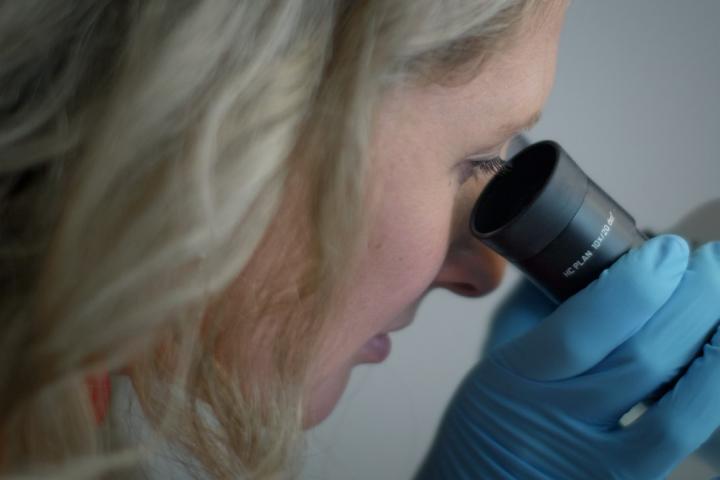
Credit: Titan II
Scientists at RCSI University of Medicine and Health Sciences have developed a new biomaterial that has the potential to accelerate bone regeneration by promoting an immune response that encourages repair and lowers the risk of inflammation.
The study, conducted by researchers at RCSI Tissue Engineering Research Group (TERG) and AMBER, the SFI Research Centre for Advanced Materials and BioEngineering Research, is published in Acta Biomaterialia
The researchers have developed a technology that is a combination of nanoparticles and a collagen-based biomaterial called a scaffold, specifically designed by RCSI TERG that can be surgically implanted to aid bone tissue repair. The material allows for the delivery of a microRNA silencer, a molecule capable of influencing the way our cells function.
In laboratory conditions, researchers successfully demonstrated that damaged bone tissue is restored as the particular microRNA delivered by the biomaterial works to increase cells responsible for bone repair. The technology also assists in promoting a pro-repair immune system response, lowering the risk of inflammation and other complications.
“The results of our research are a promising step towards improving health outcomes for patients with fractures that fail to repair naturally or have degenerative bone diseases such as osteoporosis, although further pre-clinical and clinical trials are still required before the technology could be used to treat humans,” said Dr Caroline Curtin, Lecturer in Anatomy and Regenerative Medicine at RCSI.
“We are confident that this biomaterial system will have several potential applications beyond bone repair, as it can be tailored to deliver other therapeutic molecules that address degenerated or diseased tissue in the body. At RCSI Tissue Engineering Research Group, we are exploring these possibilities through the development of similar methods to repair articular joints like the knee and hip, and attempting to apply the microRNA delivery systems to inhibit breast cancer cell growth and other novel research,” said Prof. Fergal O’Brien RCSI Director of Research and Innovation, Professor of Bioengineering and Regenerative Medicine and Deputy Director of the SFI AMBER Centre.
The research, undertaken by first author Dr Irene Mencía Castaño, is supported by Science Foundation Ireland (SFI) Research Frontiers Programme, the Advanced Materials and Bioengineering Research (AMBER) Centre through SFI and the ERC under the European Commission’s Horizon 2020 Framework Programme/ERC grant agreement.
###
About RCSI University of Medicine and Health Sciences
Ranked number one globally for Good Health and Well-being in the Times Higher Education (THE) University Impact Rankings 2020, RCSI University of Medicine and Health Sciences is an international not-for-profit university, with its headquarters in Dublin.
RCSI is exclusively focused on education and research to drive improvements in human health worldwide. It is among the top 250 universities worldwide in the THE World University Rankings (2020) and its research is ranked first in Ireland for citations. RCSI has been awarded Athena Swan Bronze accreditation for positive gender practice in higher education.
Visit the RCSI MyHealth Expert Directory to find the details of our experts across a range of healthcare issues and concerns. Recognising their responsibility to share their knowledge and discoveries to empower people with information that leads them to better health, these clinicians and researchers are willing to engage with the media in their area of expertise.
About AMBER
AMBER (Advanced Materials and BioEngineering Research) is a world-leading SFI Research Centre hosted by Trinity College Dublin, in partnership with CRANN (Centre for Research on Adaptive Nanostructures and Nanodevices) and the Trinity Centre for Biomedical Engineering at Trinity College, RCSI University of Medicine and Health Sciences, University College Cork, NUI Galway, Dublin City University, Tyndall National Institute, University of Limerick and Athlone Institute of Technology. AMBER is a multidisciplinary partnership between leading academics in materials science, bioengineering and industry, working collaboratively to develop new materials and devices for ICT, medical devices, energy and sustainable industrial technology sectors. http://www.
Media Contact
Jane Butler
[email protected]
Related Journal Article
http://dx.




